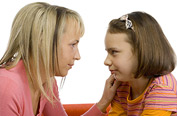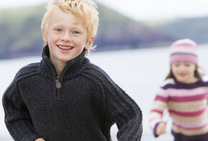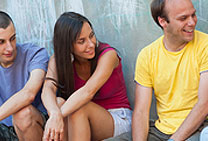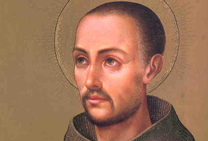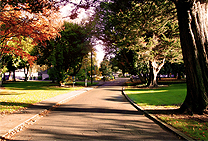ADHD

Mark’s story
Mark is 9 years old and is constantly in trouble in school. He finds it difficult to sit still in his chair in school and regularly gets up to look out the window. He is easily distracted when taking down his homework from the backboard and often brings home the wrong books. He has a very short concentration span and this is evident when he is doing his homework or when he is playing games at home. He has difficulty waiting his turn and constantly interrupts when others are talking. He can hardly sit down at mealtimes to eat his meals as he is so energetic and he finds it hard to sit still….
What are the effects of ADHD
Children with ADHD may be difficulties at home and in the classroom. Children with ADHD may find it difficult to learn social rules easily or to understand social cues. This can affect how they make friends, or don’t make friends. Turn taking can be problematic, and interrupting other children when talking can make developing friendships difficult.
If ADHD is untreated there can be very serious consequences in a person’s academic, social and family life. School years are particularly difficult for children with ADHD as they find it difficult to conform to the restraints of the classroom, often standing up or looking out of the window . Their behaviour can be very frustrating for parents and teachers and other children.
What causes ADHD
These is no single cause of ADHD but research has shown that there is a combination of genetic and environmental factors involved.
How can we help.
If a child’s symptoms of inattention or hyperactivity and impulsiveness are impairing the child’s social, academic and family functioning, then help is required. The child should be brought to a GP to rule out any medical cause for these symptoms. If necessary, hearing and vision should be checked.
The first stage of treatment is providing education and support, to child and parents, on ADHD and its management. The aim of treatment is to manage the symptoms of ADHD to enable the child to lead a normal life and reach full potential.
Resources and Reading Lists
ADHD Support Groups
- HADD (Volunteer family support group)Dublin branch at Carmichael Centre for voluntary groups, Brunswick Street, Dublin 7 Tel: 01-8748349
http://www.hadd.ie/
Reading Resources
Books for parents
- “Taking Charge of ADHD”, Russell Barkley, Guildford Press, 2000.
- “The Hyperactive Child, a Parent’s Guide” by Professor Eric Taylor (Vermilion 1994)
- “Understanding ADHD” by Christopher Green, Vermilion, 1994
- “A Parent's Guide to Attention Deficit Disorders”. Bain, LJ. New York. Dell Publishing. 1991
- “Attention, Please!: A comprehensive Guide for Successfully Parenting Children with Attention Disorders and Hyperactivity”. Copeland, E and Love, V. Atlanta, GA:SPI: Press, 1991
- “Maybe you know my kid: A Parent’s Guide to Identifying, Understanding, and Helping your Child with ADHD” Fowler MC. New York: Birch Lane Press ,1990.
- “Hyperactivity Why Won’t My Child Pay Attention? Complete Guide to ADD for parents, teachers and health care professionals” by Dr’s Sam and Michael Goldstein.
- “The ADHD Handbook – For Parents and Professionals” by Dr. Alison Munden and Dr. Jon Arcleus, Jessica Kingsley Publishing, 1999
- “Attention Deficit Hyperactivity Disorder: A multidisciplinary approach”. Henry K. Holowenko, published by Jessica Kingsley, London
- “Understanding girls with AD/HD”, Kathleen Nadeau, PhD, Ellen Littman, PhD, and Patrician Quinn, MD, Advantage Books, 2001
- “Give your ADD Teen a Chance” Lynn Weiss Pinon Press , 1996
- “How to talk so kids will listen & listen so kids will talk” by Adele Faber. Avon books 1999
- “Understanding Motor Skills in Children with Dyspraxia, ADHD, Autism and other Learning Disabilities: A guide to improving Coordination” by Lisa A. Kurtz. Jessica Kingsley Publishers, 2008.
Books for teachers / educators
- “How to teach and manage children with ADHD” by Fintan O’Regan. LDA Publishing. Distributed by Outside the Box Learning Resources. Tel: 045 856344
- “Attention/Deficit Hyperactivity Disorder – A Practical guide for teachers”. Paul Cooper and Catherine Ideus
- “ADD: Practical activities in school”. Tony Attwood
- “Teaching Teens With ADD and ADHD: A Quick Reference Guide for Teachers and Parents”, Chris A. Zeigler Dendy, MS, Woodbine House, 2003
- See internet resources also
Books for children
- Galvin M: Otto Learns About His Medicine. New York. Magination Press, 1988. Up to 3rd grade
- “Shelley, The Hyperactive Turtle” by Deborah Moss for ages 3-7, Woodbine House
- “Eagle Eyes: A Child’s View of Attention Deficit Disorder” by Jeanne Gehret, M.A. For ages 5+.
- “Putting on the brakes” by Patricia Quinn M.D. & Judith Stern M.A. for ages 8-12.
- “The Putting on the brakes activity book for Young People”, by Patricia Quinn, for ages 8-12.
- “Learning to Slow down and Pay Attention – A book for kids about ADD”. By Kathleen G. Nadeau, Ph.D and Ellen B. Dixon, Ph.D – from grades 4-8
- “Cory Stories: A Kid’s Book About Living with ADHD.” By Jeanne Kraus. Magination Press, 2002.
- “50 Activities and Games for Kids with ADHD” by Patricia O. Quinn and Judith M. Stern. Magination Press, 2000.
